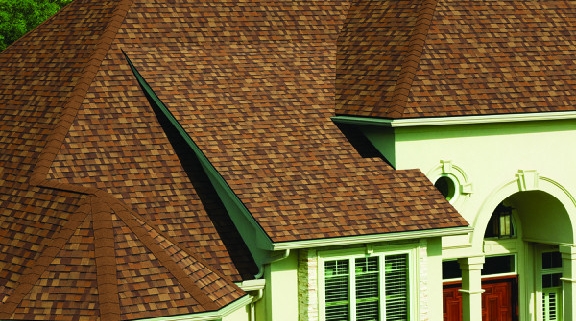Organic Asphalt Shingles vs. Fiberglass Asphalt: What Are the Pros and Cons?
Organic Asphalt Shingles vs. Fiberglass Asphalt: What Are the Pros and Cons?
Residential roofing is an important part of keeping our homes in proper working order. Our roofs are responsible for keeping us safe and ensuring that we’re comfortable within our homes. But their effectiveness can be greatly affected by the types of materials that are used to create them. With that being said, there’s a reason why so many roofing contractors recommend asphalt roofs. Asphalt is sturdy, dependable, and attractive, ensuring that you’ll be happy with both the function and the aesthetic of your roof.
However, it’s not as simple as choosing asphalt for your residential roofing needs. You have to think about what type of asphalt you’re choosing. Believe it or not, there are different types of asphalt shingles. These include organic shingles and fiberglass shingles. Before choosing between the two, you need to be as informed about their different functions. Let’s look into what you need to know about these shingles before committing to one or another.
What Are the Benefits of Organic Asphalt Shingles?
When it comes to residential roofing, there are many different benefits for you to choose from. They contain more asphalt than fiberglass asphalt shingles, which means that the basic benefits of asphalt are increased. This means that they’re more durable and last longer than fiberglass. They’re also more likely to make it through harsh weather, like major storms or severe cold, than fiberglass asphalt shingles. This is why they’re typically recommended for homes in areas prone to extreme weather.
What Are the Disadvantages of Organic Asphalt Shingles?
No single type of asphalt roof is perfect, and organic asphalt shingles are no exception to that rule. They do tend to absorb more water than fiberglass asphalt shingles and are therefore more likely to warp over long periods of time. Though you may think of warping as a largely cosmetic issue, there is real physical damage caused as well. Warped shingles are likely to weaken, and weak shingles will not be able to safeguard your home against bad weather or other threats. This is why it’s typically recommended to have your roof replaced about once every 20 years or so.
What Are the Benefits of Fiberglass Asphalt Shingles?
When choosing between different types of asphalt roofing, you’ll quickly realize that one benefit of fiberglass asphalt shingles is that they’re much lighter than organic asphalt shingles. They’re therefore easier to install and tend to cost less than fiberglass asphalt shingles.
What Are the Disadvantages of Fiberglass Asphalt Shingles?
Like organic asphalt shingles, fiberglass asphalt shingles come with their cons as well as their pros. Due to their lightweight nature, fiberglass asphalt shingles are less durable than organic asphalt shingles and may therefore need to be replaced sooner. Their thin structure also makes them more likely to crack during cold climates and they don’t provide as much insulation as their organic counterparts.
Again, no single type of asphalt roofing is going to be perfect. There will be advantages and disadvantages to both types. You should talk to your roofing contractor about their recommendations and, for that matter, make sure that you’re choosing a type of shingle that works not only for your home but your local climate.
Whether you need a reroof, a complete roof replacement, or a professional roof repair, Paramount Roofing and Siding of Madison, Wisconsin will take care of all your roofing concerns. With quality, trained professionals, they will assess the condition of your roof, and guide you on taking further action. Let us help you replace your roof.



